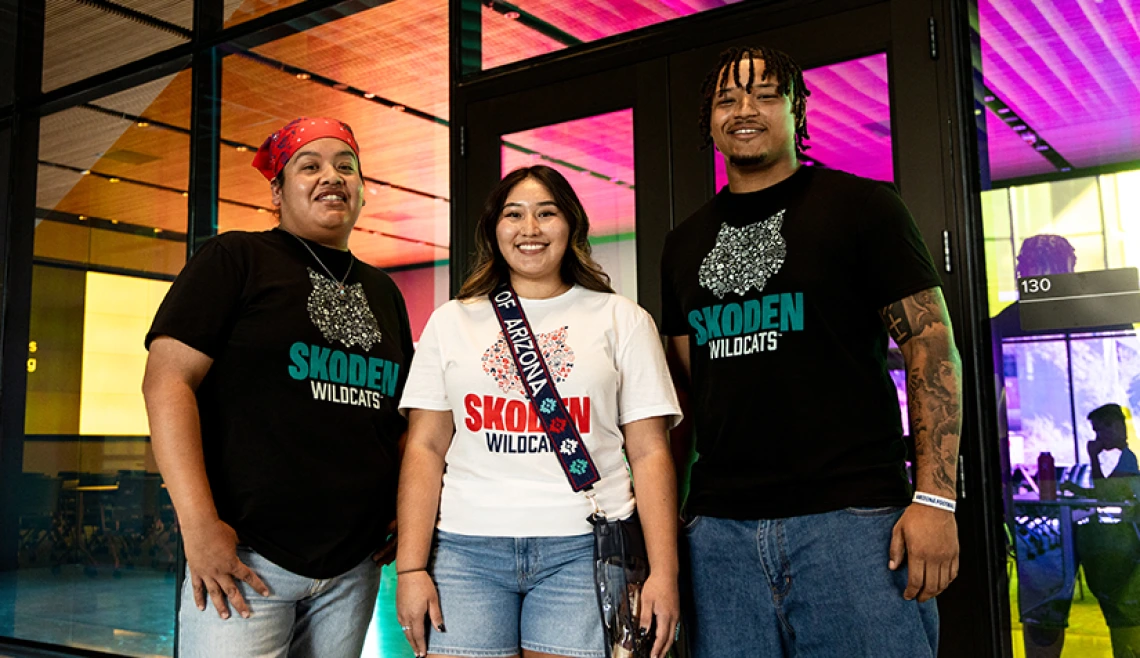Student Culture & Engagement Hub

Six Student Spaces
Students may seek connection points on campus that allow them to connect with their own culture or to learn about cultures other than their own. The University of Arizona’s Campus Community Connections includes six Student Spaces. These spaces are open to all students and invite students to participate and find belonging on campus.
“Culture” as Central to Campus Culture
There are a number of University of Arizona Offices and Initiatives that seek to address diversity across campus.
- Hispanic Serving Initiatives - The University of Arizona was federally designated as a Hispanic Serving Institution in spring 2018, having reached the 25% undergraduate Hispanic enrollment requirement. UArizona was the first four-year public university in the state of Arizona to become an HSI and one of 21 Research 1 HSIs across the nation.
- Indigenous Resilience Center - Centering Indigenous ways of knowing into co-designed environmental solutions and training the next generation of community leaders.
- Black Advancement & Engagement - The mission of the Black Advancement and Engagement Department is to advance the academic, social, and professional success of Black students, faculty, and staff within the University of Arizona community. We strive to create an inclusive environment that fosters excellence, equity, and empowerment.
- Asian Pacific Islander and Desi American (APIDA) Community Resources - On campus and community resources for the APIDA Community
Inclusion
Inclusion is one of 6 Core Values that the University of Arizona works toward. Along with the University of Arizona’s Land Grant Mission the value of Inclusion seeks to harness the power of diversity to innovate toward a better tomorrow in service of the populace of our state.
University of Arizona’s Land Acknowledgement
We respectfully acknowledge the University of Arizona is on the land and territories of Indigenous peoples. Today, Arizona is home to 22 federally-recognized tribes, with Tucson being home to the O’odham and the Yaqui. The University strives to build sustainable relationships with sovereign Native Nations and Indigenous communities through education offerings, partnerships, and community service.

